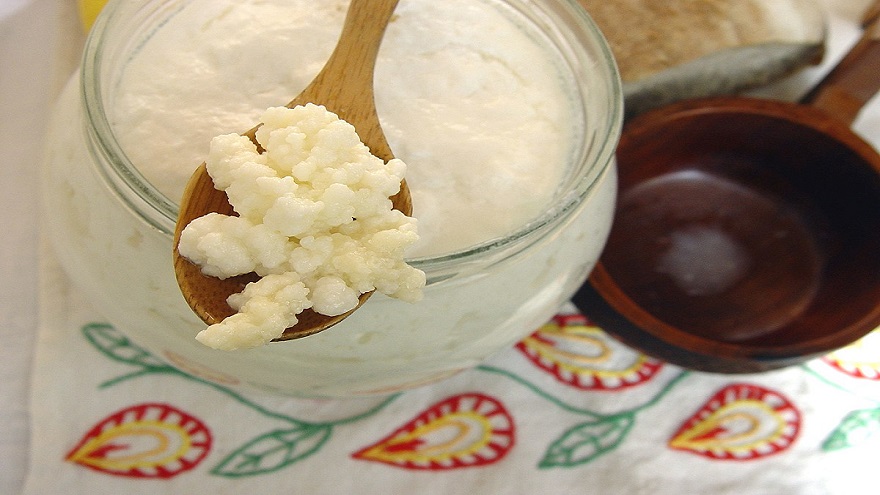Leaky Gut Syndrome, a condition where the lining of the small intestine becomes damaged, leading to undigested food particles, toxic waste products, and bacteria to “leak” through the intestines and flood the bloodstream, can cause discomfort and lead to more serious health issues. Symptoms include bloating, food sensitivities, fatigue, digestive issues, and skin problems. A primary way to manage and alleviate the symptoms of Leaky Gut Syndrome is through dietary adjustments.
Recent studies have shown a strong correlation between the foods we consume and the condition of our gut lining. In this comprehensive guide, we’ll explore the best foods to heal a leaky gut and how a balanced diet can significantly improve your gut health and overall well-being.
The Importance of a Balanced Diet
A balanced diet is crucial in maintaining a healthy gut. It provides the necessary nutrients that support the intestinal lining and ensures a beneficial balance of gut bacteria.
- Essential Nutrients: Key nutrients like fiber, antioxidants, and omega-3 fatty acids play a significant role in promoting gut health.
- Common Dietary Pitfalls: Avoid excessive consumption of processed foods, sugars, and alcohol which can aggravate the gut lining.
- Holistic Health Impact: A balanced diet not only improves gut health but also boosts the immune system, supports mental health, and maintains a healthy weight.
“Fiber-Rich Foods”
Fiber is essential for maintaining a healthy gut. It helps to keep the digestive system regular and promotes the growth of good bacteria in the gut. Foods that are high in fiber include fruits and vegetables, whole grains, nuts and seeds.
Fiber is a cornerstone for a healthy gut. It acts as a prebiotic, providing necessary nourishment for beneficial gut bacteria.
- List of High-Fiber Foods:
- Oats
- Legumes
- Berries
- Apples
- Carrots
- Types of Fiber:
- Soluble Fiber: Helps in managing blood sugar levels and reducing cholesterol.
- Insoluble Fiber: Aids in promoting regular bowel movements and preventing constipation.
Fermented Foods
Fermented foods are a rich source of probiotics which help in maintaining a healthy balance of gut flora, essential for a healthy digestive system.
- Types of Fermented Foods:
- Kimchi
- Sauerkraut
- Kefir
- Tempeh
- Incorporating Fermented Foods: Start with small servings and gradually increase as your system gets accustomed to these foods.
Anti-Inflammatory Foods
Incorporating anti-inflammatory foods can significantly reduce inflammation in the gut lining, promoting healing and overall gut health.
- Extended List of Anti-Inflammatory Foods:
- Turmeric
- Ginger
- Berries
- Green tea
- Olive oil
- The Science Behind: Anti-inflammatory foods contain compounds that help in reducing inflammation at a cellular level, promoting healing and reducing discomfort.
Foods to Avoid

Certain foods can aggravate the gut lining and should be avoided or minimized.
- Harmful Foods:
- Gluten
- Dairy
- Processed foods
- Excessive sugar
- Healthy Alternatives: Opt for gluten-free grains, plant-based milk alternatives, and natural sweeteners like stevia or monk fruit.
The Role of Supplements in Healing a Leaky Gut
Supplements can also play a significant role in supporting gut health, although they should not replace a balanced diet.
- Beneficial Supplements:
- Probiotics
- Digestive Enzymes
- L-Glutamine
- Choosing High-Quality Supplements: Look for supplements with transparent ingredient lists and consider consulting with a healthcare professional before adding any new supplements to your regimen.
Probiotics
Probiotics are beneficial bacteria that live in the gut. They help to keep the gut microbiome in balance and improve gut health. Probiotics can be found in fermented foods such as yogurt, kefir, sauerkraut, and kimchi, or they can be taken in supplement form.
Glutamine
Glutamine is an amino acid that is essential for maintaining the integrity of the gut lining. It can be found in high protein foods such as chicken, fish, and eggs, or it can be taken in supplement form.
Zinc
Zinc is a mineral that is essential for maintaining a healthy gut. It can be found in foods such as oysters, beef, and pumpkin seeds, or it can be taken in supplement form.
Creating a Meal Plan
Creating a personalized meal plan can help in ensuring a balanced intake of the necessary nutrients for a healthy gut. Consider consulting with a registered dietitian to tailor a meal plan to your specific needs.
Understanding Food Labels
Being able to understand food labels can aid in making healthier food choices. Look for labels indicating low sugar content, high fiber, and natural ingredients.
Recommended Recipes
Explore our collection of gut-friendly recipes that adhere to the guidelines provided in this article. From hearty breakfasts to nourishing dinners, discover a variety of meals to support your gut health journey.
Conclusion
Incorporating the right foods into your diet can significantly improve the symptoms of Leaky Gut Syndrome and support a healthier gut lining. With a balanced diet, the right supplements, and an understanding of harmful foods to avoid, you can take a proactive step towards better gut health and overall well-being.
If you’re interested in learning more about healing your gut, we offer a free gut health guide that you can download. It’s packed with information on the best foods for leaky gut, supplements and other tips on how to heal your gut.
You May Also Like:
We also want to offer you the chance to try our probiotic green drink, Life Greens. It is a specially formulated blend of organic greens, fruits, and probiotics, designed to support gut health and boost your overall well-being. You can try a free 3-day supply and see the difference it makes in your gut health.


